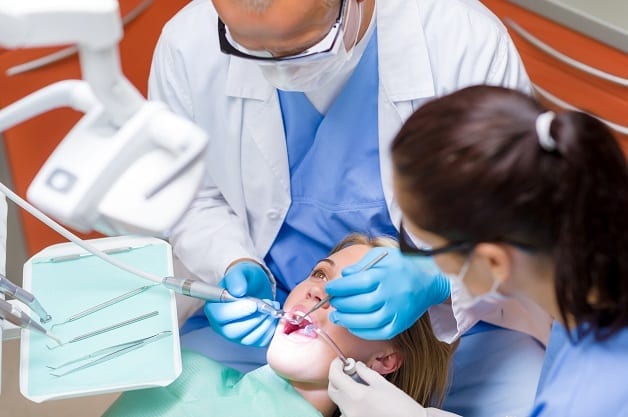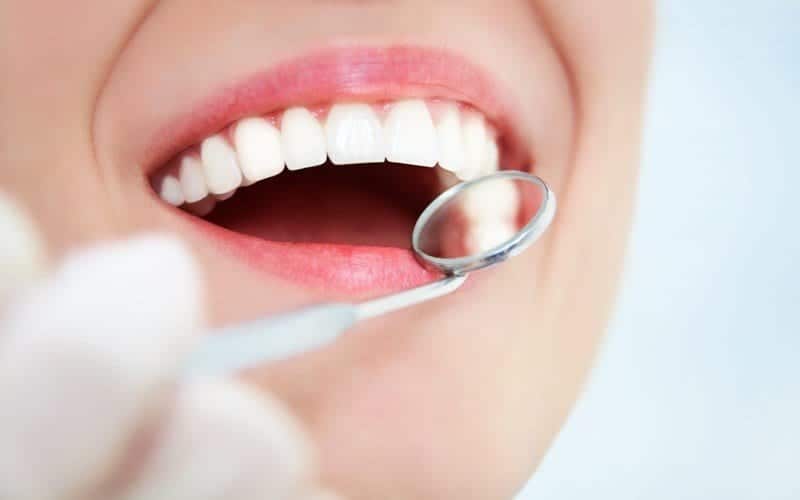Dental health should not be viewed separately from the overall health. If you think that there are not enough reasons to take good care of your mouth, teeth and gums aside from having a nice smile and pleasant breath, remember that there is a strong link between your oral health and your overall health. It is unfortunate that oral health is sometimes not included in general health promotions and campaigns, resulting to millions of people suffering from toothache and other oral diseases. Studies revealed that good oral health could actually add up ten (10) years to your life! It’s clear that investing in your oral health means investing in a good, long life.
Our mouth contains bacteria. Without proper hygiene, these bacteria can reach levels that lead to tooth decays and gum diseases. Studies suggest that oral bacteria and periodontitis (a severe gum disease) are linked to some diseases. For instance, diabetes and human immunodeficiency virus (HIV) lower the body’s resistance to infection, making oral health problems more severe.
This may surprise you: Your saliva can actually detect diseases and complications. Saliva test promotes accuracy, efficacy, ease of utilization, and cost effectiveness. It was in the early 1960’s when saliva was identified to have a diagnostic potential. Saliva can be seen in many cases as a reflection of the physiological function of the body and is being studied to replace blood tests. Your saliva protects you from microbial invasion, but some medications reduce saliva flow, including decongestants, antihistamines, painkillers, diuretics, and antidepressants.
Why Your Oral Health Needs Your Attention

The bacteria that release acids in your mouth can form dental plaques that attack your enamel. Eventually, the dental plaques, if not addressed, can lead to tooth decay. It also leads to gingivitis and when progresses, periodontitis will be developed. Gum tissue will pull away from your teeth, which will allow bacteria to destroy the underlying bone that supports your teeth. The consequences of poor oral health may not lead to just having tooth decay and gingivitis. Enormous amounts of bacteria can go to your bloodstream, affecting other systemic parts of your body.
The following diseases and conditions can be affected by your oral health:
Heavy drinkers and smokers are at higher risk of getting oral cancer. It is the sixth most common cancer, with 30,000 cases and 8,000 deaths every year. Talk to your dentist when you experience or have symptoms like sores for weeks, swelling near your mouth and neck, white or red patches in your mouth or on your lips, repeated throat and mouth bleeding, and difficulty in swallowing.
Endocarditis is an infection of the inner lining of your heart (endocardium) caused by overgrowth of bacteria. This typically occurs when bacteria from another part of your body, say your mouth, enters your bloodstream and goes to the damaged areas of the heart. There are studies that linked oral inflammatory disease to cardiovascular health. According to the Canadian Academy of Periodontology, having periodontal disease will make a person prone to heart disease.
After heart disease, the next complication that one may face that is also associated to oral health is stroke. A study conducted by Dental Health Services suggested that there is a relationship between stroke and periodontal disease. 17% of the respondent had periodontal disease when they were hit by stroke.
In July 2008, researchers at Columbia University’s Mailman School of Public Health measured the level of periodontics bacteria of 9,296 non-diabetic participants in 20 years. The study revealed that people who had higher levels of periodontal disease had double risk of developing type 2 diabetescompared to people with low levels or no gum disease. It is believed that inflammatory molecules attach to insulin receptors and prevents the body’s cells from using the insulin to get glucose into the cell.
A study in 2005 funded by National Institutes of Health (NIH) randomly picked 1,056 respondents with no prior heart conditions and evaluated them for levels of periodontal bacteria. The research concluded that there was an independent relationship between gum and heart diseases. The author of the study mentioned that small amounts of bacteria could enter the bloodstream while chewing. The bacteria may go inside the blood vessels, which may lead to clogs.
According to 2001 study, pregnant women with gum disease between weeks 21 and 24 are four (4) to seven (7) times likely to give birth before week 37. Poor oral health may cause low birth weight, premature births, developmental problems, asthma, ear infections, birth abnormalities, and behavioral difficulties. It may even increase the risk of infant death.
Dementia may be caused by bacteria from gingivitis that enters the brain through the bloodstream. This may eventually lead to Alzheimer’s disease.
Oral health has something to do with pneumonia. A study conducted in 2008 to elderly participants suggested that the bacteria from the mouth could get aspirated into the lungs, causing pneumonia.
The American Dental Association encourages HIV/AIDS patients to include dental health in their HIV/AIDS treatment plans. These patients are more susceptible to infections including dental infections, which will eventually affect the patients’ health in general. HIV can cause pain and tooth loss. Other mouth issues that a person suffering from HIV includes dry mouth, thrush, white lesions (oral hairy leukoplakia), red band gingivitis, ulcerative periodontitis, Karposi’s Sarcoma, outbreaks of herpes simplex virus, canker sores, and mouth ulcers. To address mouth problems related to HIV do not forget to take HIV medicine on schedule. Work closely with the dentist on the treatments or medicines that are needed.
Gum diseases can cause anxiety. Stress reduces the body’s defense against bacteria that contributes to gum diseases. Stress may contribute to teeth grinding, dry mouth, gum diseases, tooth decay and canker sores – all of which affect your oral health.
Even your joints’ condition can be affected by your oral health. When teeth grinding is frequent, it can damage the tooth enamel.
Bacteria from the mouth can affect your organs. It spread to different organs in your body. Damaged organs will not work properly which oftentimes cause illness and even death.
A 2012 study found out that oral bacteria could contribute to knee osteoarthritis and rheumatoid arthritis.
Poor oral health can also lead to hardening of the arteries, which can reduce blood flow.
Pylori bacteria can cause stomach ulcer. Patients with poor oral health are prone to reinfection.
Obesity is also associated with periodontitis as both states are chronic inflammatory diseases that can possibly worsen the overall systemic inflammatory response.
There are other medical conditions that you and your dentist may be concerned of like thyroid problems, high blood pressure, asthma, sleep and breathing disorders, skin rashes, bruxism (teeth grinding), tuberculosis, drug abuse, anorexia, digestive disorders and upper respiratory problems.
Common Risk Factors

Here is the list of factors that affect your oral health.
Your diet. A diet that is high in sugar and fat, and not so much to fruits and vegetables, vitamins and minerals contributes to the risk of cardiovascular disease, cancer, diabetes, etc.
Smoking and chewing tobacco are linked to several types of cancer including oral cancer. Try some activities like exercise, chew a gum, drink lots of water, and the like to divert your attention to other healthy activities.
Same with smoking, excessive alcohol consumption can contribute to the development of cancers not just oral cancer but kidneys, colon, liver, etc.
Poor oral hygiene is also one of the factors.
Your Oral Health Care Plan
It is important for you to have a plan on how you will take care of your oral health. As mentioned in some part of this article, there are so much systemic diseases that can be linked to oral health. You can use this guide to start or improve your oral health care plan.
Know your own dental needs. It is important for you to know if you have oral conditions and how to get them treated. Do not forget about the medications you are taking (if there are). When something unusual happens, contact your dentist.
Create and stick to your established daily oral health routine. For instances that you are exposed to diseases, commit to do extra tasks to save your oral and overall health.
Use toothpaste and mouthwash with fluoride to strengthen your teeth. Get advice on fluoride supplements from your dentist. Also, brush your teeth twice a day for at least two minutes. Use dental floss every day to remove plaque from in between your teeth that your toothbrush cannot reach. Clean and scrape your tongue daily.
Check your gums regularly and report any changes to your dentist.
Eat foods rich in nutrients like vitamins A and C to prevent gum disease.
Avoid cigarettes and any related products for they will contribute to gum disease and oral cancer.
Visit your dentist for regular cleanings and exams. This is one of the most effective ways to detect the early signs of gum disease. The evident benefits of having your teeth cleaned are prevention of cavities, stoppage of tooth loss, freshens your breath, boosts your overall health, and save you money.
Exercise, somehow, can prevent gum disease. A study shown that people who are fit are 40 percent less likely to develop gum infections.
No Oral Plans Means Oral Complications Expenses
According to the World Health Organization (WHO), dental treatment is costly lowering the quality of life of people with oral complications. This means that if you take good care of your dental health, you are also saving money. In a number of countries, oral disease is one (1) of the most expensive diseases to cure.
Why Some Avoid Dentists

Sometimes, the reason why our oral health is taken for granted is the anxiety we get from visiting dentists. It seemed that anything that has something to do with our teeth would hurt. How can we fight this feeling? Here are some of the tips to calm yourself when you see your dentist.
Share to your dentist the reason why you are afraid of dental procedures. When you tell your dentist what you feel, he will adapt the treatment to your needs.
When you feel nervous, focus on your breathing. Breathe slowly as it reduces stress levels.
Distract yourself of anything. Listen to music, watch movies, etc.
Avoid sugary foods and drinks before a dental appointment. Eat high-protein foods instead as they produce calming effect.
When you feel uncomfortable, use body signals to communicate with your dentist so you can take a short break.
Choose Sunday or an early morning schedule so that you are not stressed yet during the procedure.
Check reviews about dentists or ask referrals from your family and friends. Doing so will reduce anxiety. Match your dental needs to your dentist. You may also factor in accessibility. Have a first meeting with the dentist and conduct evaluation after.
Taking care of your oral health means taking care of your overall health. The benefits of getting good dental care will redound to the rest of your body. Practicing proper dental care is important, so encourage people you know to practice good oral hygiene. Protecting your oral health is not just fighting cavities and infections; it is maintaining your general health and saving yourself from possible complications.
Thantakit International Dental Center can help you achieve good overall health through its superb dental services as Thailand’s longest established dental center. Situated in Bangkok, our clinic is renowned across the world as a destination for world-class dentistry, with most of our patients flying to us from Australia.
Please contact us today and get a FREE dental consultation.












